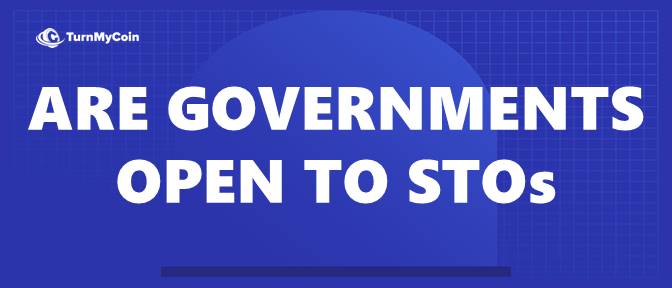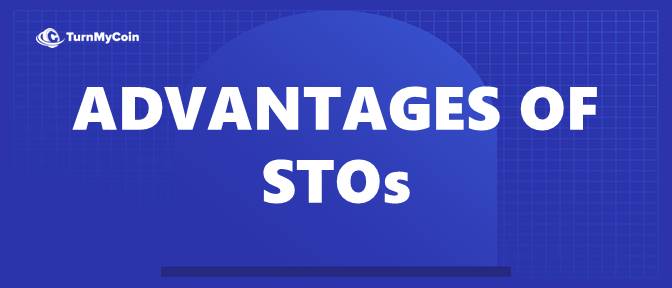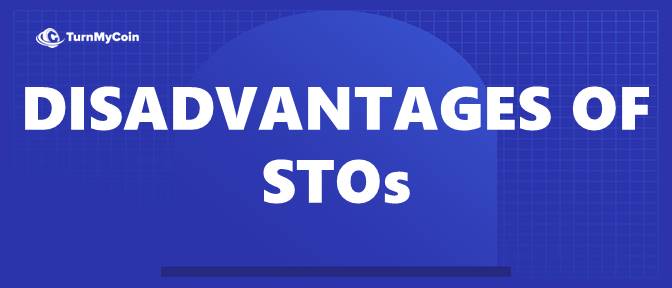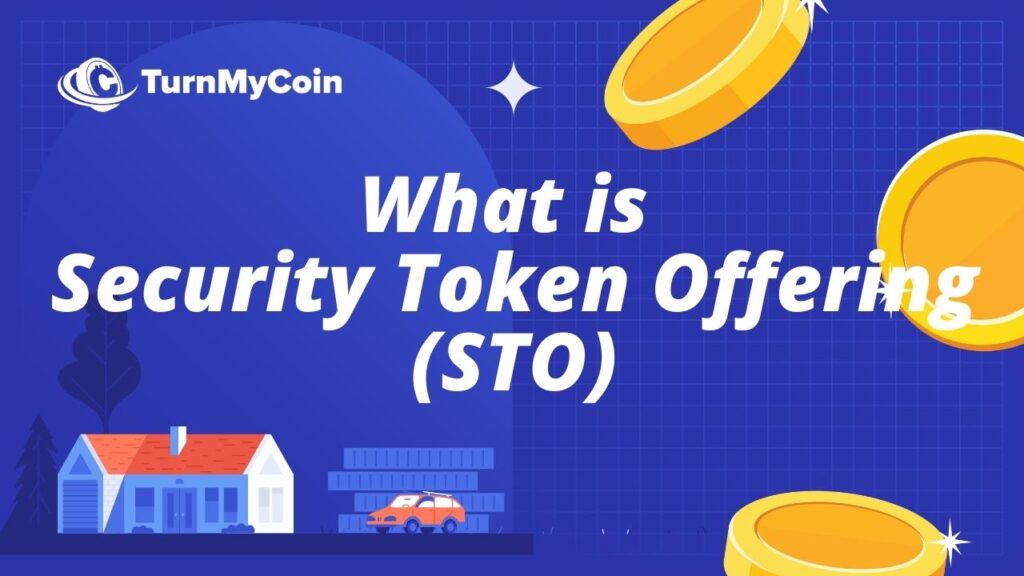Last updated on March 23rd, 2023 at 01:14 pm
Introduction
Blockchain became widely used after the launch of Bitcoin in 2009. Blockchain Technology is highly valued in finance. Even if we consider the fact that the reputation of cryptocurrencies and other blockchain-related financings as being erratic and risky.
Large financial and technological institutions have already made forays into the blockchain market, including JP Morgan, Square, and Facebook.
What is Security Token Offering (STO)?
Security token offering is what STO stands for.
A security token functions as a contract for investments into underlying financial assets. These financial assets include stocks, bonds, funds, and real estate investment trusts (REITs).
Security is a “fungible, negotiable financial instrument that holds some form of monetary value. It can also be an investment product backed by a tangible asset like a business or piece of real estate.
When the sale of tokens for such digital securities (security tokens), are offered by security token exchanges it is known as a security token offering (STO). Alternatively, tokenized initial public offering (IPO). A blockchain virtual ledger system is used to store and validate token transactions, and tokens can be used to exchange actual financial assets like stocks and bonds.
So, a security token represents the ownership details of the investment product, which we store on a blockchain. For instance, just like ownership details are recorded on a paper certificate and made available to investors in traditional stocks (like a PDF). The procedure is the same for STOs, but the token is issued and recorded on a blockchain. The ensures the integrity of the records.
Because of its overlap with both of these techniques for raising capital, we can view STOs as a hybrid strategy between cryptocurrency ICOs and the more conventional initial public offering (IPO).
We would suggest reading : What is Initial Coin Offering? How to know if its a Curse or a Blessing
1. How to Define and Regulate STOs Around The World?

When it comes to the definition of a security token and whether or not some utility tokens should be regulated as security tokens, the Securities and Exchange Commission (SEC) in the United States is likely the most outspoken.
In their Decentralized Autonomous Organization (DOA) report from July 2017, the SEC concluded that the DAO ICO qualified as an investment contract under the definition of a security offering.
The Supreme Court defined an investment contract, that develops from a significant case involving the SEC and The Howey Company, and according to the SEC, ICOs will be categorized as securities if they meet this description.
What is currently referred to as the Howey Test for Security Token Offering confirmation states that:
“An investment contract is:
- An investment of funds
- In a joint venture
- With a reasonable expectation of profits
- To be realized via the entrepreneurial or managerial efforts of others.”
A further finding of the DAO research was that “the investment of money need not take the shape of cash.” additionally stated by SEC Chairman Jay Clayton during a Senate hearing on February 6, 2018:
“Every ICO I’ve seen is a security,” the speaker asserts.
Warren Davidson, a member of the US Congress, tweeted on February 14 that a bill to exclude digital tokens from securities legislation and taxation will reintroduce to the US Congress “soon.”
#TokenTaxonomyAct We appreciate everyone’s contributions. The updates excite me and @RepDarrenSoto, and we look forward to submitting this bipartisan bill soon. We never stop warning our coworkers about the critical necessity for light-touch regulatory assurance. #blockchain
A 50-page consultation document titled “Guidance on Cryptoassets” was published by the Financial Conduct Authority (FCA) of the United Kingdom in January 2019.
They identified three categories of tokens by the FCA in it:
1. Exchange Tokens
Tokens used for trade are “not issued or backed by any central authority and intend and designed to be used as a means of exchange.” They are outside the regulatory purview of the regulator.
2. Utility Tokens
“These tokens do not provide holders rights that are identical to those granted by Specified Investments, but rather access to an existing or upcoming good or service.” If they fit the description of “e-money,” they can be considered to be within the perimeter.
3. Security Tokens
“These are tokens that fit the criteria of a Specified Investment, like a share or a debt instrument, due to certain qualities.” If they fit the criteria for a “Specified Investment,” they fall under the full purview of FCA laws.
The Financial Market Supervisory Authority (FINMA) of Switzerland published its ICO guidelines on February 16, 2018, stressing that each case must decide on its own merits. Like the FCA, FINMA likewise divided coins into three categories:
1. Payment Tokens
“Tokens may, in certain situations, only develop the essential functionality and gain acceptance as a form of payment over time.” Although FINMA will not treat these tokens as securities, it will nonetheless demand compliance with AML laws.
Although FINMA will not classify these tokens as securities, it will nevertheless demand adherence to anti-money laundering (AML) laws.
2. Utility Token
‘Intended to enable digital access to an application or service,’ according to utility tokens. These tokens do not consider securities if their primary function is to grant users with digital access rights to a particular application or service, and this function is already possible at the time the utility token is issued.
3. Asset Token
Represent assets such as stakes in organizations, businesses, or earnings streams, or a right to dividends or interest payments. Asset tokens must comply with securities legislation trading regulations because FINMA views them as securities.
2. Are All Governments Open to the Idea of STO?

Briefly, NO.
China, South Korea, Vietnam, Algeria, Morocco, Namibia, Zimbabwe, Bolivia, India, Lebanon, Nepal, Bangladesh, and Pakistan are just a few of the nations that have outlawed Security Token Offerings (as well as cryptocurrency trade in general).
While in other nations, like Thailand, where governments are still debating how to regulate it, Security Token Offering restrictions are less definite. Thai-related STOs launched on overseas markets violate the law, according to Thailand’s Securities and Exchange Commission (Thai SEC).
But in a Bangkok Post story, Tipsuda Thavaramara, the deputy secretary of the Thai SEC, stated that the commission has yet to decide how Security Token Offerings will be regulated and that, for the time being, it will examine them on a case-by-case basis.
We have not yet determined whether STOs are subject to the SEC Act or the Digital Asset Act; nonetheless, it depends on the terms of each STO and the information in its white paper.
3. What are the Advantages of an Security Token Offering?

Both an ICO viewpoint and an IPO perspective can be used to analyze it.
- Since Security tokens must abide by securities rules that frequently enforce transparency and accountability. STOs can be perceived as having lesser risk than ICOs.
- Security token will be backed by a physical item, making it much simpler to determine whether or not the token is appropriately valued in comparison to the underlying asset. It might be challenging to determine a token’s true worth and whether or not it has the proper price when dealing with pure utility tokens.
- Also because banks and brokerages act as middlemen in STOs, they are less expensive than typical IPOs. The blockchain eliminates paper-based processes, while smart contracts lessen the need for attorneys. It expedites the procedure while also making it cheaper.
Particularly with historically illiquid assets like precious artworks, real estate, and collectibles, fractional ownership and the availability of trading around-the-clock increase market liquidity.
Dan Doney, co-founder, and CEO of the fintech company Securrency wrote to the business and financial news outlet CNBC in an email and stated:
The availability of 24-hour trading in a variety of currencies provides investors with convenience and liquidity. Smaller investors who would not typically have access to the more cutting-edge forms of assets can now access the market thanks to these similar features.
4. In the long run, it’s advantageous for blockchain adoption. Because STOs are compliant with the law, institutional investors will be more willing to invest in them because they are seen as less risky.
We anticipate the market to become less volatile, and blockchain adoption will increase as more institutional investors begin to invest.
4. What Are the Main Challenges with Security Token Offering?

They will have to set up procedures for custodianship, tracking ownership, exchange approvals, Know Your Customer (KYC), AML, etc. To ensure they abide by the pertinent securities regulations, which would increase their administrative burden. Even while the procedure is thought to be less expensive than a standard IPO, it is more expensive and has a higher barrier to entry than utility ICOs because of the added upfront effort.
Additionally, the weight of carrying out these tasks now rests on the shoulders of the business as a result of the removal of some middlemen like banks, brokerages, and lawyers, which increases the administrative burden.
The number of investors in the STO may limit by laws in some countries, which narrows the pool of potential investors.


